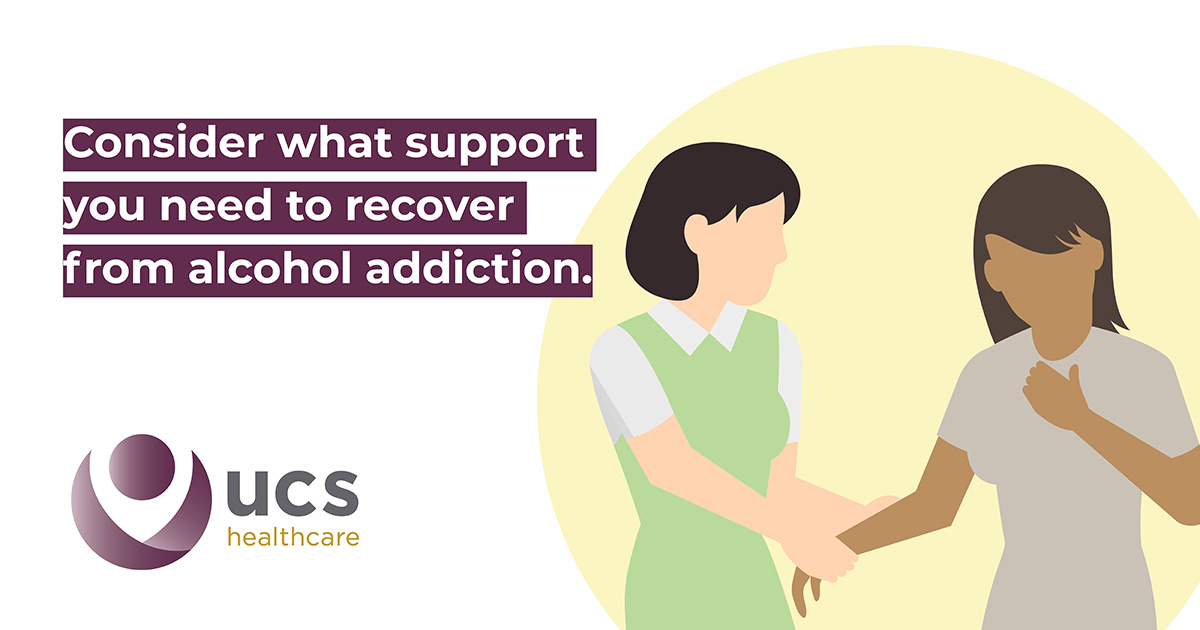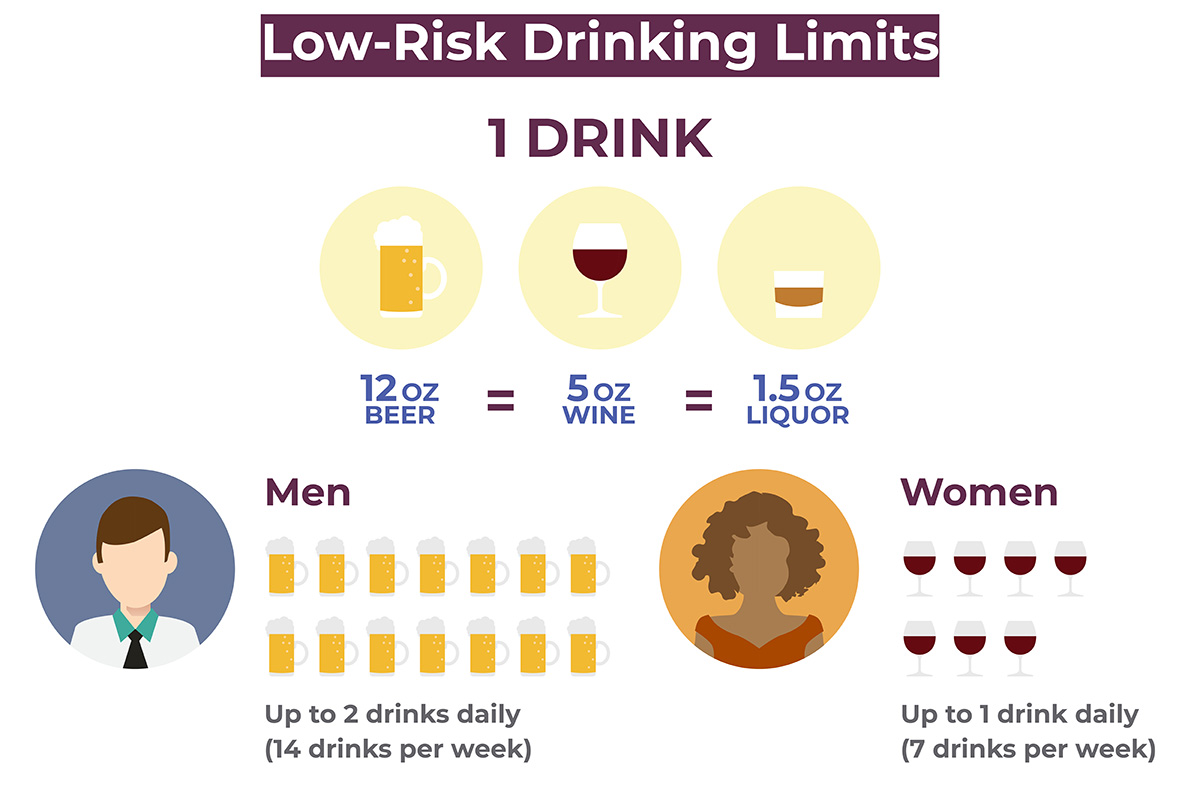Do I Have a Drinking Problem? How to Know The Signs of Alcohol Addiction
February 1, 2021

The COVID-19 pandemic has lingered on longer than anticipated, and throughout this time people have faced various hardships. Feelings of increased stress, boredom and disappointment over this time have contributed to an increase in alcohol use. If you have felt yourself drinking more and are feeling uneasy about it, read on to learn how to recognize a drinking problem and adjust your habits.
Signs and Symptoms of Alcohol Addiction
You may be familiar with some of the common signs of a drinking problem such as being secretive about your drinking, feeling distressed when you don’t have access to alcohol or feeling guilty about how much alcohol you’re consuming but being unable to stop. While these are some of the mainstream symptoms of alcohol addiction, they are not the only signs of an unhealthy relationship with alcohol.
If you have been asking yourself “Do I have a drinking problem?” or “Am I drinking too much?” consider if you have noticed any of these behaviors that could signal you’ve been drinking more than normal:
- Having alcohol more days in the week
- Drinking more in each sitting
- Reaching for a drink earlier in the day
- Giving yourself taller pours or higher quantities when you’re drinking
- Spending more money on alcohol
- Feeling the physical effects of increased alcohol usage
- Thinking back and realizing your memories are foggy
- Feeling guilty or ashamed by your drinking habits
- Getting inquiries, comments or concerns about your drinking from your family or friends
How Many Drinks is Too Much? How to Recognize a Drinking Problem
We all have an idea of an alcoholic in our mind and what we perceive alcohol addiction to look like. No matter what you picture in your head, it’s rarely us or our friends and family. Alcohol use disorders can impact anyone, and alcohol addiction can look very different from person to person, which can make it difficult to notice the signs and symptoms of alcohol addiction.
Some people can drink once a month and be an alcoholic. Some people can drink more often and not be an alcoholic. The difference is the reasons why you are drinking, the frequency and quantity of your alcohol consumption and the impact the drinking has on you or others around you. If you notice signs of excessive drinking or you suspect you might have a problem, here are a few considerations to determine if you have unhealthy drinking habits or are drinking for the wrong reasons:
- Drinking every time you are stressed out. When wanting a drink occasionally to take off the edge turns into, “I need a drink,” whenever you’re stressed out, it’s likely a sign of a drinking problem. Make an effort to be aware of how you’re coping with stress, and try to choose healthy alternatives like exercise, meditation, reading, cooking, etc.
- Drinking to “get through” your responsibilities. Whether it’s work, parenthood or other necessary tasks, we shouldn’t be turning to alcohol to face the challenging aspects of our lives. If this becomes a habit, it could have serious implications on your job, family life and more.
- Turning to alcohol instead of healthier habits. Maintaining healthy routines is extremely beneficial. If you’re regularly choosing alcoholic drinks over water to quench your thirst or noticing that your hangover is getting in the way of your morning workout, it may be time to think twice about your choices.
- Using alcohol as an escape. Some people may feel so overwhelmed by what’s going on that they use alcohol to escape reality. They believe the short-term or long-term effects of alcohol are not as harmful or scary as the turmoil we’re facing as a society or the individual battles they’re fighting. If this is how you feel, you should seek help for this symptom of alcohol addiction.
- Feeling hungover often. Hangovers are a sign that you are participating in unhealthy drinking habits. If you’re noticing the headaches and nausea of a hangover frequently, you may want to reflect before you suffer long-term health problems from drinking too much.
Should I Stop Drinking? How to Cut Back on Drinking Habits
You may feel you are ready to cut back on drinking on your own if you notice some of these signs of drinking too much. Remember, you are not alone, and many people struggle with their alcohol use. Be proud of yourself for taking the first step in recognizing a drinking problem and wanting to work towards a better, healthier you.
If you are asking yourself, “What is the best way to stop drinking?” start with the Awareness & Adaptation method. This is a two-step process that involves monitoring your drinking behaviors and motivators. First, in the awareness stage, you won’t change your drinking habits for at least two weeks; just record each time you consume alcohol. We recommend being specific - to truly know the root of your drinking problems you should write down the time of day, how you were feeling that made you want to drink, how much alcohol you consumed and if it impacted your thoughts or behavior.

Once you’ve recorded your behavior for a few weeks, check your results and assess how you feel about your drinking habits. This may help you recognize a concerning pattern or give you the push you need to cut back on drinking. During the adaptation stage, make conscious decisions to change your problematic habits. This is different for each person, but adaptation may include drinking later in the day, drinking less often on weeknights or stop drinking out of boredom.
The Awareness & Adaptation method is just one way to cut back on drinking. The best way to stop drinking may look different for many people - it is not easy, and it may take several attempts. For some people, they realize they don’t have the ability to stop drinking once they start, so sobriety may be the best choice. If you’re struggling to find the best way to cut back on drinking, we recommend working with a professional to get sober or find a way to manage your alcohol use at a moderate level.
What Happens When You Reach Out to a Doctor for Help Cutting Back on Drinking?
After you reach out for professional help, you will go through a series of questions about your drinking habits and the lifestyle you lead. The SBIRT (Screening, Brief Intervention & Referral to Treatment) assessment is a starting point to determine the risk level of your drinking habits and should be administered by a medical professional. Ideally, we recommend you reach out to your primary care provider or UCS Healthcare to get started.

At UCS Healthcare, you will complete a new patient assessment which will help us understand your total health. We will ask you to complete a health history and ask you a series of questions that will help us determine your patterns and relationship with alcohol or other drugs and the level of your disorder or addiction. We may ask you questions like:
- How often do you have a drink containing alcohol?
- How many drinks containing alcohol do you have on a typical day when you are drinking?
- How often do you have five or more drinks on one occasion?
- How often during the last year have you found that you were not able to stop drinking once you had started?
- How often during the last year have you failed to do what was normally expected of you because of drinking?
- How often during the last year have you needed a first drink in the morning to get yourself going after a heavy drinking session?
- How often during the last year have you had a feeling of guilt or remorse after drinking?
- How often during the last year have you been unable to remember what happened the night before because of your drinking?
- Have you or someone else been injured because of your drinking?
- Has a relative, friend, doctor or other healthcare worker been concerned about your drinking or suggested you cut down?
- Have you ever been in treatment for an alcohol problem?
Once we assess your health needs, our providers will put together a course of action to help you work on a plan for cutting back on drinking and working through related mental health issues. While we work together to help you improve your drinking habits, we may discuss the benefits of sobriety and if that is the right choice for you.
Benefits of Sobriety
Some people will be able to limit their alcohol intake, but others will need to turn to sobriety to control their drinking behaviors and habits. This is not easy with all the pressures involved with drinking in social settings and the normalization of alcohol consumption in our society, but if you are struggling it is important for your health and relationships. We recommend looking into various resources that will help you with recovery, such as the Sober Mom Squad, which inspires women to leave the “mommy wine culture” behind to be a more present and attentive parent.

Many of our patients have found that becoming sober has helped them lead a more fulfilling life. Additionally, excessive drinking can lead to underlying health problems, so when you stop drinking you may notice some of these benefits:
- Healthier habits
- Better sleep
- More control over anxiety, depression and other mental health disorders
- Improved relationships
- Improved physical health
- More motivation and ability to concentrate
- Improved family life, career, etc.
Reach Out to UCS Healthcare for Help With Alcohol Addiction
Our team is here to help you with your total health. When you’re ready to make a change to your alcohol use, we will be prepared to help find the best way for you to stop drinking or cut back. UCS Healthcare has made it easier than ever to seek help from licensed professionals by offering virtual care and assessments. Our experts also provide integrated care and same-day assessments at three convenient locations in the Des Moines metro area. Reach out today to get started.
Learn more about how alcohol consumption has changed during the pandemic in our COVID article series:
UCS Healthcare is part of the IDPH Integrated Provider Network, with services funded by the Iowa Department of Public Health and the U.S. Dept. of Health and Human Services Substance Abuse and Mental Health Services Administration.